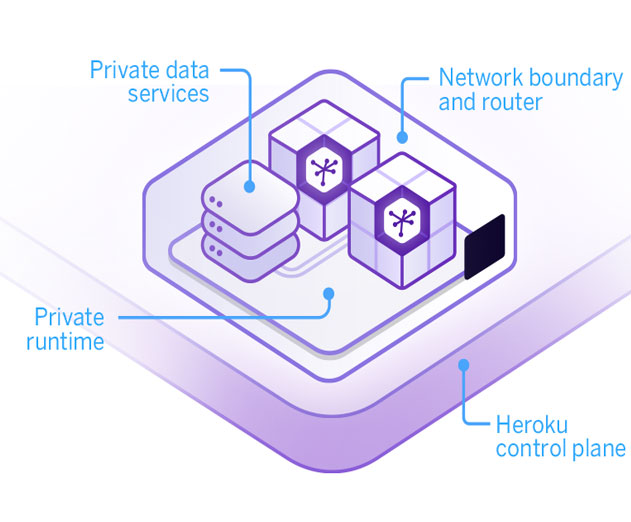Heroku's Private Spaces Brings New Levels of Security for Apps in the Cloud
Monday, September 28, 2015

|
Richard Harris |
Heroku’s new Private Spaces, now in limited beta, offers a new Heroku runtime that provides a way to isolate network applications and data services in the cloud. It provides a network isolated group of apps and data services with a dedicated runtime environment, provisioned to Heroku in a specific geographic region. Private Spaces is powered by Heroku Dogwood, a new runtime architecture that augments the current Cedar runtime stack. Private Spaces is being released as part of Salesforce’s new App Cloud.
A Heroku Private Space contains all of the elements of a Heroku app, including dynos and data services which are deployed and run in network isolated environments, separating the “private” application, including its associated data, from the “public” systems that keep it running.
Developers create and deploy apps in Private Spaces just as they would normally on Heroku with the Heroku Button, git push deployments, review apps, pipelines, seamless scaling, self healing and Elements Ecosystem all included.
Applications in a Private Space reside in an isolated virtual network with access controlled at the network level. Space administrators can choose from which other networks applications can be accessed and with the built-in NAT gateway, apps in a Private Space can be granted access to restricted services in other networks using IP whitelisting.
Heroku’s new Private Spaces offers a new Heroku runtime that provides a way to isolate network applications and data services in the cloud. Private Spaces is powered by Heroku Dogwood, a new runtime architecture that augments the current Cedar runtime. Spaces are being released as part of Salesforce’s new App Cloud.
Dynos running in a Private Space are connected to a single private dyno network allowing dynos to communicate with each other using any TCP or UDP port and protocol. For example the platform provides the ability for web dynos to communicate with each other and share session state over a gossip protocol as well as allowing web and worker dynos to communicate with each other without going over the public Internet. It also allows dynos from different applications to talk to each other as long as they are in the same Private Space which can be useful for deploying diagnostics applications that consume diagnostics streams from other application dynos over the private network.
Private Spaces can take advantage of fine-grained access controls which can be delegated to apps inside Private Spaces allowing organizations to manage large application portfolios. The new network controls allow for separation of responsibilities where administrators control network access while developers retain maximum self-service deployment without compromising security.
Read more: https://www.heroku.com/private-spaces

Become a subscriber of App Developer Magazine for just $5.99 a month and take advantage of all these perks.
MEMBERS GET ACCESS TO
- - Exclusive content from leaders in the industry
- - Q&A articles from industry leaders
- - Tips and tricks from the most successful developers weekly
- - Monthly issues, including all 90+ back-issues since 2012
- - Event discounts and early-bird signups
- - Gain insight from top achievers in the app store
- - Learn what tools to use, what SDK's to use, and more
Subscribe here

_r2f0ox12.jpg&width=800)










